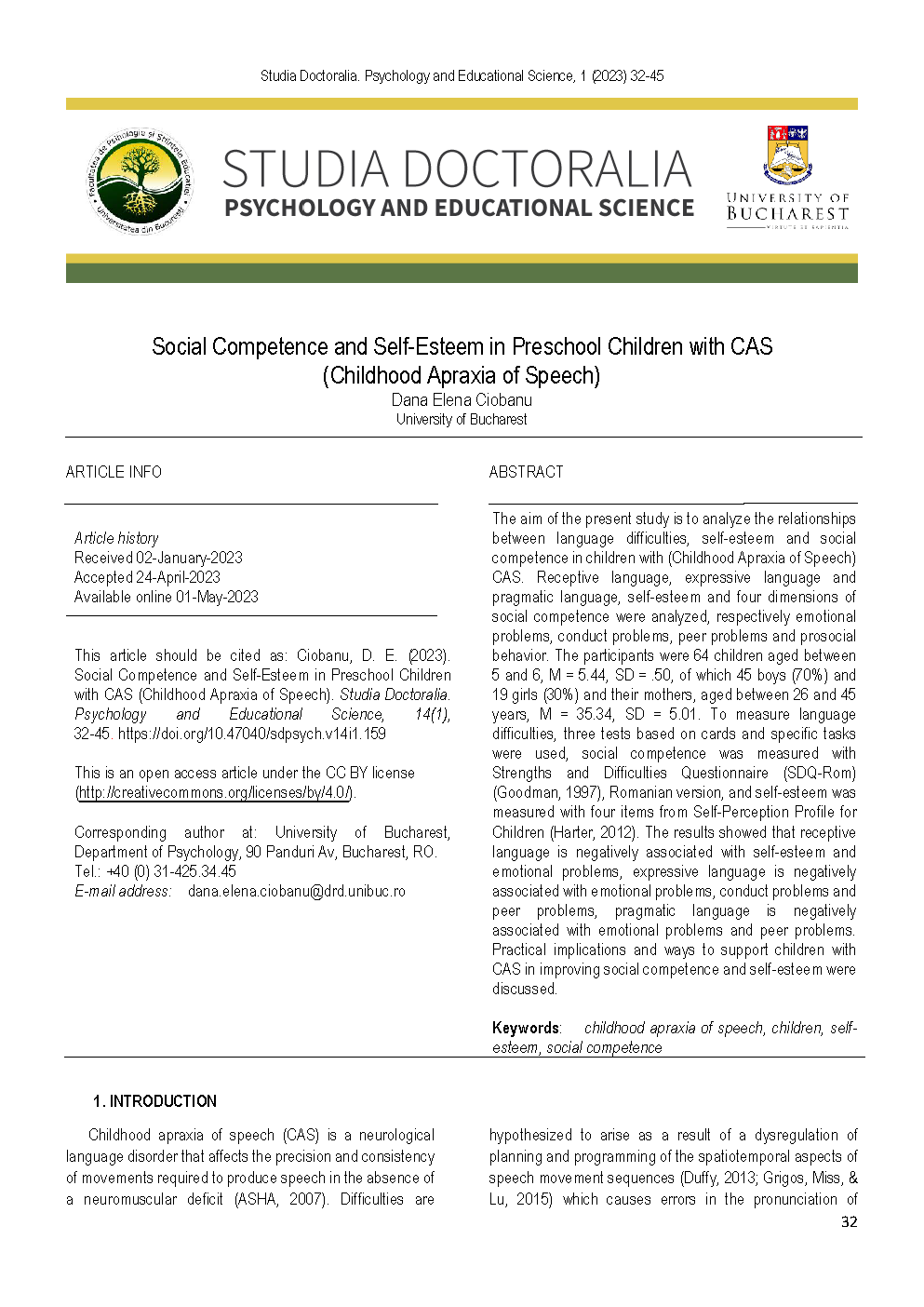Social Competence and Self-Esteem in Preschool Children with CAS (Childhood Apraxia of Speech)
DOI:
https://doi.org/10.47040/SDPSYCH.V14I1.159Keywords:
childhood apraxia of speech, children, selfesteem, social competenceAbstract
The aim of the present study is to analyze the relationships between language difficulties, self-esteem and social competence in children with (Childhood Apraxia of Speech) CAS. Receptive language, expressive language and pragmatic language, self-esteem and four dimensions of social competence were analyzed, respectively emotional problems, conduct problems, peer problems and prosocial behavior. The participants were 64 children aged between 5 and 6, M = 5.44, SD = .50, of which 45 boys (70%) and 19 girls (30%) and their mothers, aged between 26 and 45 years, M = 35.34, SD = 5.01. To measure language difficulties, three tests based on cards and specific tasks were used, social competence was measured with Strengths and Difficulties Questionnaire (SDQ-Rom) (Goodman, 1997), Romanian version, and self-esteem was measured with four items from Self-Perception Profile for Children (Harter, 2012). The results showed that receptive language is negatively associated with self-esteem and emotional problems, expressive language is negatively associated with emotional problems, conduct problems and peer problems, pragmatic language is negatively
associated with emotional problems and peer problems. Practical implications and ways to support children with CAS in improving social competence and self-esteem were discussed.





